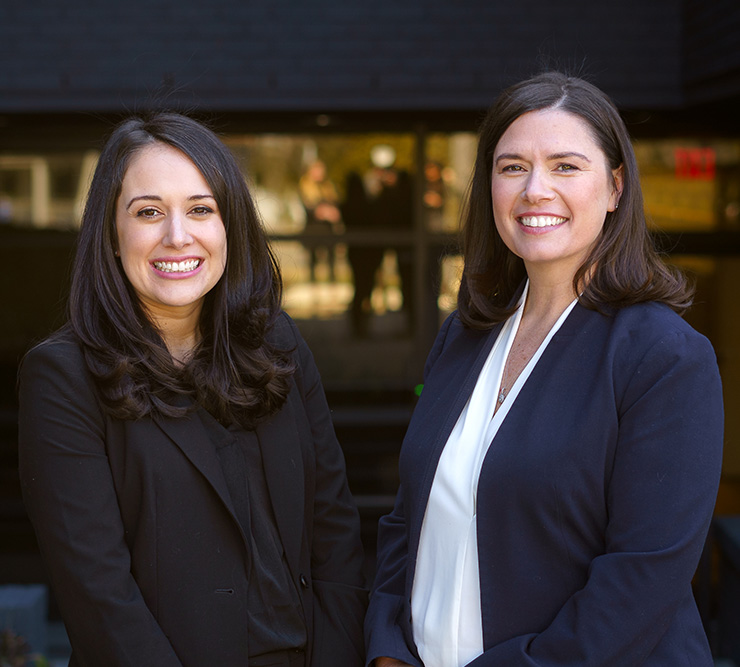

Westport Child Custody & Visitation Lawyers
Practical Solutions for Clients in Fairfield County
When navigating the sensitive and deeply personal matter of child custody, you need a thorough understanding of your legal options and the factors that impact court decisions. At Ferro, Battey & Eucalitto, LLC, we recognize that your child's well-being is paramount.
Our team is committed to providing comprehensive legal representation to help you achieve a custody arrangement that prioritizes your child’s best interests. As a trusted child custody attorney in Westport, we combine compassion with strategic legal counsel to guide you through every phase of your case.
Discuss your case with a Westport child custody and visitation attorney at Ferro, Battey & Eucalitto, LLC by calling (475) 264-4362 or reaching us online.
Legal Custody vs. Physical Custody
Custody arrangements are typically divided into two components: legal custody and physical custody.
- Legal custody refers to the authority to make major decisions regarding the child’s upbringing, including education, healthcare, and religion.
- Joint legal custody allows both parents to share decision-making responsibilities, fostering cooperation and mutual involvement in the child’s life.
- If one parent is awarded sole legal custody, that parent retains exclusive authority over these matters.
- Physical custody relates to where the child resides. The court may award sole physical custody to one parent, with the other parent typically receiving visitation rights.
In Fairfield County, courts often encourage both parents to maintain strong, healthy relationships with their children whenever possible. This means that even if physical custody is granted primarily to one parent, visitation and parenting time for the other parent are carefully considered to support the child’s sense of stability and continuity. Courts look at geographic proximity, school and extracurricular considerations within Westport, and the ability of each household to support the child’s ongoing needs when making these determinations.
Joint Custody
Courts often award joint physical custody in Connecticut custody cases.
Connecticut law presumes joint custody is in the child's best interests when both parents agree. Visitation schedules can be as detailed or as flexible as needed to accommodate family needs and preferences, as long as they meet the child's best interests.
It's important to understand that joint custody does not always mean a perfectly equal split of time. Courts consider a wide range of factors—such as each parent's work schedule, the child's school and activity locations, and any unique family dynamics—to craft effective parenting plans. In many cases, joint custody arrangements are customized to the family's specific circumstances, providing creative solutions like alternating weeks, extended weekends, or shared holidays based on what works best for the child.
The goal is to reduce potential conflicts and provide each parent a meaningful role in the child's daily life, all while remaining aligned with local court preferences and requirements.
Understanding Custody Determinations in Connecticut
Connecticut courts base custody decisions on the child's best interests.
To make this determination, the court assesses a variety of factors, including:
- The emotional bond between the child and each parent
- The child’s developmental needs
- The ability of each parent to provide a safe and stable environment
- The child’s relationships with siblings
- The willingness of each parent to foster the child’s relationship with the other parent
- The child’s preferences, depending on their age and maturity
- The mental and physical health of both parents
- The history of caregiving by each parent
- Any evidence of abuse or neglect
Child custody orders can be modified when a substantial change in circumstances occurs or if the custody orders are no longer in the child’s best interests. Either parent may request a modification.
Types of Visitation Orders & Parenting Schedules
Visitation orders, sometimes called parenting time orders, are central to many custody cases throughout Connecticut. Courts can establish arrangements that range from highly specific schedules, with fixed pick-up and drop-off times, to more flexible plans that allow parents to cooperate as circumstances change. In Westport, supervised visitation may be considered for situations where the child’s safety is a concern, while unsupervised or reasonable visitation is more common when both parents have demonstrated a commitment to their child’s best interests. Our visitation attorneys serving Westport assist families in understanding the different types of visitation frameworks available and in crafting proposals that address unique logistical or interpersonal challenges.
Frequently Asked Questions
What Role Does Mediation Play in Westport Custody & Visitation Disputes?
Mediation is a common and encouraged part of custody and visitation cases in Westport and the broader Fairfield County district. Local courts often direct parents to participate in mediation to help them reach a mutually agreeable parenting plan outside of the courtroom. This process is designed to minimize adversarial conflict, promote cooperative decision-making, and provide parents with the opportunity to maintain greater control over their schedule and child’s routines.
Can Child Custody or Visitation Orders Be Changed After They Are Finalized?
Yes, child custody and visitation orders in Westport can be modified after they are finalized if there is a significant change in circumstances. Such changes might include a parent’s relocation, substantial shifts in work schedules, a child’s evolving needs, or concerns about safety and well-being. To initiate a modification, a parent must file a motion with the court, providing evidence for why a revised order is necessary to serve the child’s best interests. In Fairfield County, the reviewing judge will assess whether the proposed changes address the needs unique to your family situation.
At Ferro, Battey & Eucalitto, LLC, our child visitation lawyers in Westport support clients with guidance and advocacy through the modification process to ensure all relevant details are presented and the child’s stability is prioritized.


-
“I had a fairly complex case which involved adultery. Janet & Olivia were able to dissect the issue in a stepwise, logical manner, delivering ample rewards during the actual trial.”- Former Client
-
“I know Ferro Family Law provided me the very best outcome I could hope for. Since then, I have retained them to represent me in some post judgment actions.”- Former Client
-
“From the first time I met Janet & Olivia, through the end of my case, I knew I was in great hands. I cannot thank Ferro Family Law enough.”- Former Client
-
“Aggressive, compassionate, cost-effective. I regularly refer Janet & Olivia to some of my most sensitive divorce cases. They are results-focused and responsive.”- Attorney Referral
-
“This compassionate group of knowledgeable attorneys helped me and my children. I have and will continue to refer this firm to anyone in need of counsel for divorce.”- Former Client
-
“Not only did Janet & Olivia quickly help me secure all protections for my daughter, they also ingeniously found a way to impel my spouse to get proper treatment.”- Former Client
-
“Janet & Olivia genuinely care about all aspects of the client’s case and pay close attention to the client’s concerns, goals, and finances.”- Former Client
-
“I have worked on several matters with Janet and Olivia. They are amazing attorneys. Smart, thorough and practical.”- Former Client

Have Questions?
-
What is alimony?Alimony is a court-ordered payment from one party to another. There are several factors that come into play when determining if one party should be granted alimony including, but not limited to, the length of the marriage, the amount and sources of income, and the causes for the breakdown of the marriage. Connecticut does not have alimony guidelines, which means that the decision to award alimony, including the duration and the amount, is entirely in the judge’s discretion.
-
How are child support obligations determined?In Connecticut, when determining child support, the court is required to consider the Connecticut Child Support and Arrearage Guidelines. The Guidelines set forth a presumptive child support award for each case based upon the parties’ combined net weekly incomes and the number of children the parties have. In addition, the court may consider a number of other factors, including, but not limited to, the estate and needs of the child, vocational skills and employability of each parent, and each parent’s earning capacity. The court may also deviate from the presumptive child support for different reasons, which can include shared physical custody, coordination of total family support, or extraordinary disparity in parental income. To learn more about the calculation of child support in Connecticut, including high-income cases, click here.
-
How can a divorce lawyer help?Having a divorce lawyer will help to make the divorce process less confusing and overwhelming. A divorce lawyer will be able to advise you on the law and realistic outcomes for settling your case or at trial. In addition, a divorce lawyer will manage the case, including dealing with the other side, and advocating for your positions.
-
What is joint custody?
There are two types of joint custody: joint legal custody and joint physical custody. Legal custody concerns the parents’ ability to make major decisions for their children. Major decisions include health, education, and religious decisions. If parents have joint legal custody, the parents are required to agree on all major decisions for their children.
Physical custody addresses when the children are with each parent. If the parents have joint physical custody, each parent spends time with the children. In some cases, parents may have shared physical custody, which means the children spend approximately half the time with each parent.
